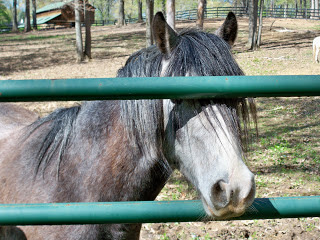Zoobiquity
Authors Barbara Natterson-Horowitz, M.D., and Kathryn Bowers coined the word "zoobiquity" to describe their efforts to use animal behavior and the latest finds of veterinary science to solve some of the great puzzles of human medicine.
Take fainting, for instance. Turns out that animals faint, too, and can better elude predators when they do. It's not just "flight or fight," then, but "flight, fight or faint." A important lesson — that stillness is another way to fight stress.
Or take obesity. It's common in the animal world, and studies on dragonflies raise the possibility that the condition might be caused by a parasite, raising the more intriguing possibility that obesity might be infectious.
Natterson-Horowitz, a cardiologist and psychiatrist, has observed first-hand what fear can do to the human heart — and she honed her theories by learning about animal hearts, how restraint or fear of capture can kill an otherwise healthy bird or beast. She then applies this to what is known about Sudden Infant Death Syndrome, and a study that found a threefold greater risk of this among swaddled (i.e., restrained) babies put to sleep on their stomachs and exposed to a loud noise. The combination of noise and restraint triggers a slowdown of the heart in the young of many species, Natterson-Horowitz says, and calls for more collaboration among animal physiologists and pediatricians. "Powerful yet vulnerable, the heart-brain alliance usually saves lives," the authors write. "But every once in a while, it can also end one."
Zoobiquity is big-picture thinking at its best.
Take fainting, for instance. Turns out that animals faint, too, and can better elude predators when they do. It's not just "flight or fight," then, but "flight, fight or faint." A important lesson — that stillness is another way to fight stress.
Or take obesity. It's common in the animal world, and studies on dragonflies raise the possibility that the condition might be caused by a parasite, raising the more intriguing possibility that obesity might be infectious.
Natterson-Horowitz, a cardiologist and psychiatrist, has observed first-hand what fear can do to the human heart — and she honed her theories by learning about animal hearts, how restraint or fear of capture can kill an otherwise healthy bird or beast. She then applies this to what is known about Sudden Infant Death Syndrome, and a study that found a threefold greater risk of this among swaddled (i.e., restrained) babies put to sleep on their stomachs and exposed to a loud noise. The combination of noise and restraint triggers a slowdown of the heart in the young of many species, Natterson-Horowitz says, and calls for more collaboration among animal physiologists and pediatricians. "Powerful yet vulnerable, the heart-brain alliance usually saves lives," the authors write. "But every once in a while, it can also end one."
Zoobiquity is big-picture thinking at its best.


<< Home